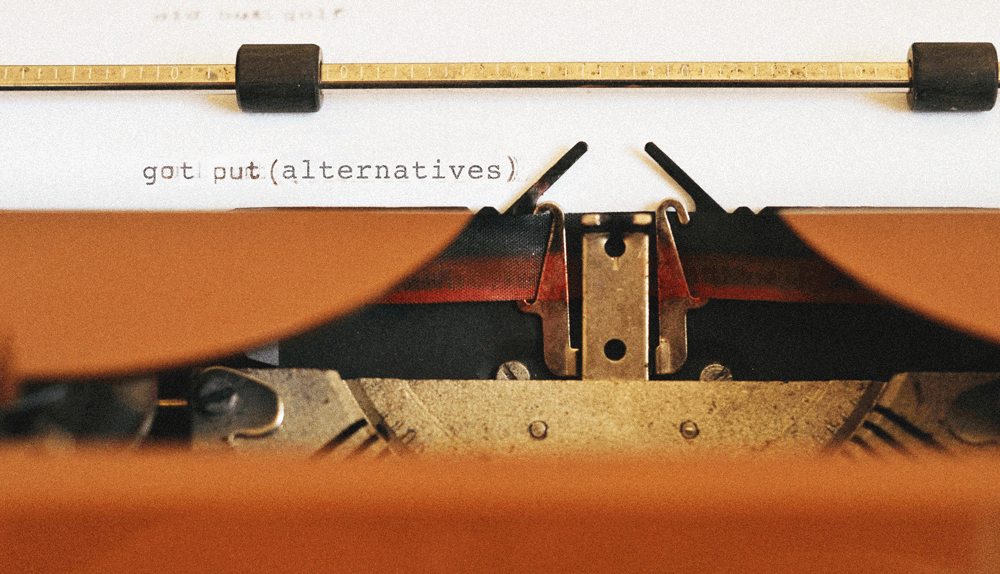I just completed an MFA program, where I worked for two years to develop my craft and voice as a writer, and this past May, I graduated with my MFA in Interdisciplinary Arts and Writing. I won’t say I “got” my degree, because I still have an impossible time writing the word “got” thanks to Mrs. Banks from my 8th grade English class. Which is where I believe my craft and voice development actually began.
On the first day of 8th grade English class, Mrs. Banks announced that we were never, ever to use the words “got” or “put” in our work because there is always a better word, and then proceeded to hand out a ditto with hundreds of suggestions for alternative words. It was quite astounding. And mostly, she has proved to be right. (For those of you who didn’t grow up in the eighties, a ditto is the predecessor to the photocopy and consisted of purple print on whatever color paper there was at school. The paper had a very specific aroma that came from the duplicating fluid used in the ditto machine and was sometimes damp if it was fresh off the machine.)
Mrs. Banks called this document the “Got Put Ditto” and we were to keep it for future use. (I wish I could say I still had it, but it “got put” somewhere I can’t remember) We were to never turn in a paper that used the words got or put under the penalty of law. With this handout, she planted the idea that my writing choices really meant something, and I should strive to be as specific as possible when I write, using words that reinforce my meaning.
Since we also produced the Junior High School newspaper, The Bantam Beat, in that class, (itself a ditto with its signature purple print) there were many opportunities to use words to our own ends. For example, a boring, uninformative headline might be School Gets Ten New Computers. This would become instead School Receives Donation of Ten New Computers, which not only gives more information, but with that word choice imparts the feeling of a relationship (School Receives Donation) instead of a one way download (School Gets) you could also say School Rounds Out Computer Lab with New Computer Donation, which would place the emphasis on completion of the lab and the use of the computers. It was a valuable lesson in specificity and word choice that I have since then completely ignored when speaking, but strive to implement when writing.
One notable exception for me is “getting into the car” and its various permutations, (“get on the bus”, etc.) While you could feasibly “enter the car,” “slide into the front seat of the car”, etc, sometimes you just need to “get in the car”.
These days, the main “get” phrase that stands out to me verbally is when people (even myself sometimes) say something like, “What did you get her for her birthday?” The problems with this sentence are rooted in the original message of the “Got Put Ditto” of course, but are also difficult because of the inherent capitalist implication that the word get always seems to imply in cases like these — the center of attention being on the buying or procuring an object as opposed to the action of giving it to someone, which, in the case of a birthday, is presumably the desired focal point. So I much prefer “What did you give her for her birthday?” which switches the focus from the buying action of the subject to the giving action to another person, offering a much different meaning. And if you still really want to emphasize the procuring-of-the-object action, you could always say, “What did you buy her for her birthday? or “What did you make for her?” etc.
Anyway, this detail to language didn’t “put” me on the path to being a writer, but it definitely contributed to the craft and voice of it, along with a similar declaration from Katie Watts at the Argus Courier newspaper, where I freelanced for many years. The day I began working at the paper, Katie insisted that under no circumstances was I to use the word “interesting” in any article. She stopped short of handing me a ditto with alternatives, but like Mrs. Banks, she was absolutely right. So the word interesting never got put into any of my articles, but I wrote more fascinating, or unique, or detailed descriptors instead, thanks to these women.
Just the idea of considering words and taking care with them ignited a desire to use them creatively in a variety of ways, including journalism, poetry, creative non-fiction and fiction. But also, you could say that eliminating words that amount to taking the easy way out when writing is probably the first step in developing your voice as a writer. I welcome you to try it yourself, take out all instances of got, put and interesting and see what develops.






I totally got your interesting meaning when you put the detail of purple into your ditto paragraph. Kachunk, kachunk, kachunk. ⭐️
“Got Put Ditto!” A charming and unforgettable story. I am old enough to remember dittos! I laughed at the spot-on description. Also, I appreciated the excellent reminder to make writing specific and meaning-full through the words we choose!